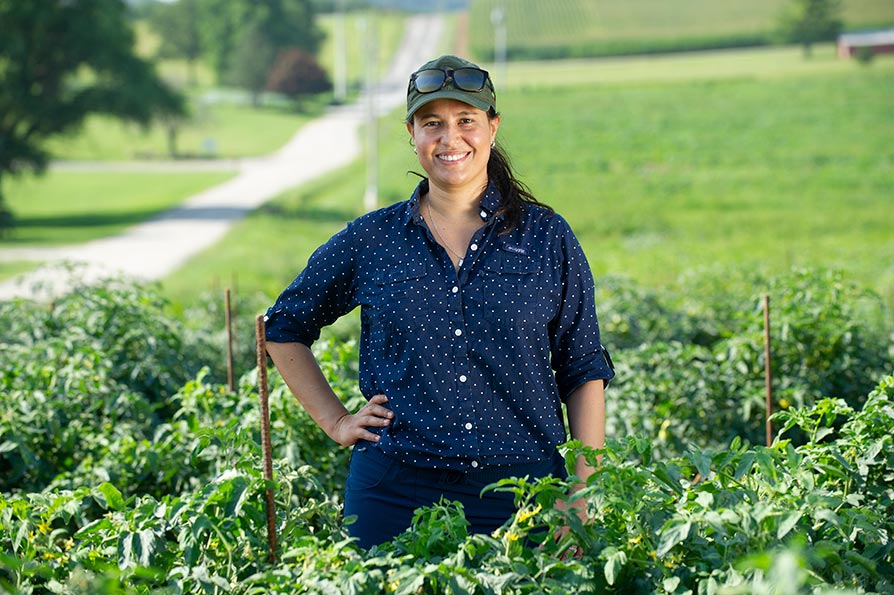A Better Blackberry? Scientists Find Clues To Grow On
University of Florida researchers are on a mission to breed and grow better blackberries suited for their climate. In a new study, scientists found metabolites that might boost antioxidant contents and anti-inflammatory properties of these blackberries.
In the study, UF/IFAS Associate Professor Yu Wang led a team that compared the metabolite profiles of six blackberry varieties. Among them, ‘Kiowa’ showed the highest ability to protect cells from damage and fight inflammation.

Planting of ‘Kiowa’ blackberries in Central Florida.
Photo courtesy of Zhanao Deng
‘Kiowa’ was developed by James Moore and John R. Clark at the University of Arkansas in the 1990s. ‘Kiowa’ is not grown commercially in Florida, but there’s a good reason for that says UF/IFAS Professor Zhanao Deng. “We grow them in blackberry field trials, but it’s not grown commercially in Florida because it’s thorny. Since it has the highest levels of antioxidants, we are using this cultivar as a parent in breeding to develop new thornless cultivars with high antioxidant contents as well as high yields and flavorful berries.”
Blackberries are still an emerging crop in Florida. According to Deng, about 130 acres of the fruit are commercially produced in the Mayo area of North Florida and in Plant City and Parrish in the Tampa Bay region. Blackberry cultivars on commercial farms include ‘Osage,’ ‘Ouachita,’ ‘Ponca,’ ‘Prime-Ark Freedom’ and ‘Prime-Ark Traveler.’ UF/IFAS researchers are now hoping to add ‘Kiowa’ to the mix for breeding better blackberries for Florida growers.
“This work could provide a perspective on potential health benefits of consuming blackberries,” Wang adds. “This study deepens our understanding of the molecular mechanisms contributing to the health benefits of blackberries.”
For more information, visit blogs.ifas.ufl.edu.









